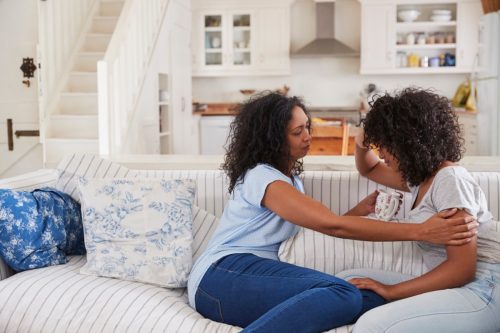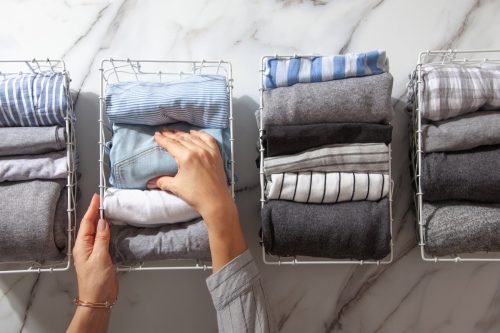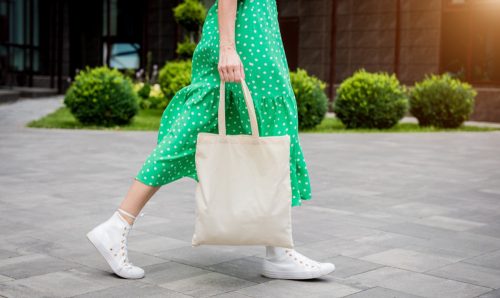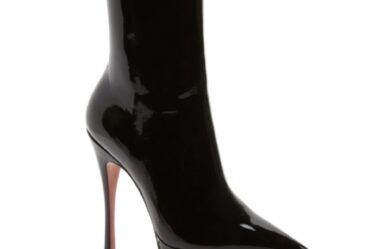
Trust is one of the most essential building blocks to any type of relationship. Inviting someone new into your life or making a long-term commitment can’t happen unless there’s trust—and on the professional front, your employer has to trust you if you’re asking for a major promotion. Unfortunately, people in the U.S. have become less trusting over time. The General Social Survey (GSS) has been gathering information about Americans’ trust in others since 1972, and has found that people seem to trust each much less today than they did 40 years ago. But as it turns out, something as simple as changing your clothes can change the way other people view you. And one recent study pinpointed the specific shade that people associate with high levels of trust. Read on to find out what color you might want to introduce to your closet.
READ THIS NEXT: Wearing This Color Instantly Makes You More Attractive, Studies Show.
People have been using fashion as a form of self-expression for centuries. And it’s not only what we wear but the color we’re wearing that turns out to have one of the most potent effects. “The color of our clothing serves as a signal to others; it tells them who we are,” fashion company The Good Trade explains.
Susan Gagnon, a fashion expert and the editor-in-chief of Costumes Heaven, tells Best Life that the concept is central to one field of study: color psychology, which seeks to determine how certain colors impact human behavior. “Our brains are wired to sensory triggers with emotions. Some triggers incite happiness, others sadness,” Gagnon explains. “As such, different colors get different emotional reactions from us, such as trust.”
Thankfully, you don’t have to spend your own time trying to figure out which color is associated with higher levels of trust—because researchers have already pinpointed the answer in a recent study.

If you’re looking to gain the trust of those around you, it could come down to the color of your shirt.
Researchers from the Soochow University in China recently sought to “explore the influence” of clothing colors on the perception of trust, publishing their findings in the International Journal of Engineering Research & Technology (IJERT) in May 2021. The researchers gathered 32 participants and had them rate the level of trust they felt towards a digital figure wearing the same business suit photoshopped into different colors: red, yellow, green, blue, purple, orange, yellow-green, blue-green, and blue-purple. According to the study, the color blue, followed by blue-purple, were seen as the most trustworthy.
“Those who wear blue and purple clothes get higher trust evaluations,” the researchers wrote.
RELATED:
For more up-to-date information, sign up for our
daily newsletter.

David Lee, a color expert and retail interior designer, says that colors such as a blue and purple are likely to make other people see us as more trustworthy because there are “positive associations” with these hues. For example, the color blue is often associated with the sky, which is “calm and serene,” according to Gagnon.
“So when people see others wearing blue, their brain associates it with the calmness of the sky,” she says.
According to Lee, traits such as calmness and serenity can increase the security people feel in others. “This helps create trust and you get a feeling of security. It conveys reliability,” he explains.
Of course, you can choose to wear blue in important situations, like during a job interview. But your natural attraction toward certain colors actually does say a lot about who you really are. “The colors you choose to wear represent your inclinations,” Gagnon says. “We unconsciously pick colors that match our personalities.”

The IJERT study also pinpointed the color of clothing that received the lowest trust evaluation: green. This hue is “generally associated with motivated and ambitious people,” according to Gagnon. Although that might sound like a good thing, it’s likely to make people see you as very self-motivated—which doesn’t always lay the best foundation for trust.
As Lee notes, the color green is also often linked with more explicitly negative traits such as deception and greed. Jessica Kats, a fashion expert and lifestyle writer at Soxy, reiterates that the hue is associated with jealousy and envy. “People consider it an untrustworthy color in many cultures and traditions,” she explains.



